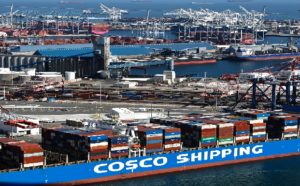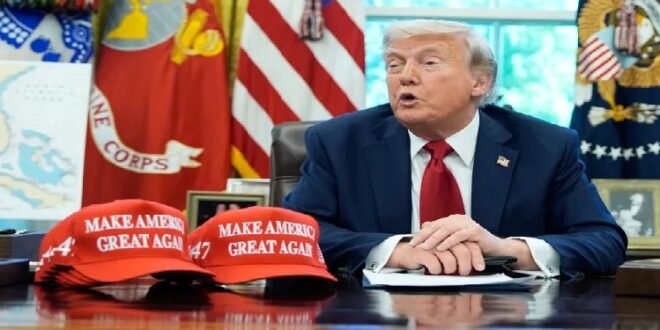25-04-2025
WASHINGTON/ BEIJING: As the United States and China engage in a trade war driven by steep tariffs imposed by President Donald Trump and counter levies by President Xi Xinping, one sector that could be deeply impacted and in turn have a disproportionate impact on the health of Americans, is pharmaceuticals.
 The US imports 75 percent of its essential medicines. The Trump administration has begun its investigation into imports of medications and the active ingredients needed to make them, saying a lack of that in the US poses a national security threat. It is also threatened sectoral tariffs that could range from 7.5 percent to 100 percent in addition to the 145 percent currently in place on China.
The US imports 75 percent of its essential medicines. The Trump administration has begun its investigation into imports of medications and the active ingredients needed to make them, saying a lack of that in the US poses a national security threat. It is also threatened sectoral tariffs that could range from 7.5 percent to 100 percent in addition to the 145 percent currently in place on China.
While pharmaceuticals have been exempt from Trump’s reciprocal tariffs thus far, it’s not clear how long that will last, especially with potential sectoral levies in the pipeline.
In the immediate term, there is some insulation between the looming escalated prices and what consumers will pay when they go to pick up their medication at their local pharmacy.
Unlike other goods, pharmaceutical prices for consumers are not subject to the same instantaneous market fluctuations. The complex supply chain across the pharmaceutical industry means that there is a lag between tariffs and the impact they might have on patients.
At the same time, there are stockpiles at nearly every step of the supply chain. Wholesalers have their own, as do pharmaceutical giants and even the federal government.
“A lot of these medications, especially ones that are, like, in pill forms, are pretty stable for a long time,” Bruce Y Lee, professor of health policy at the CUNY Graduate School of Public Health and Health Policy, told media.
In the short term, pharmaceutical companies and healthcare providers can eat the spike in costs like they did during the COVID-19 pandemic. That gives pharmaceutical companies and trade groups time to plead with the administration to ensure exceptions from the tariffs continue.
 India supplies about half of all generic drugs used in the US. However, it depends on China for 80 percent of its active pharmaceutical ingredients (APIs), the chemical compounds medications are made from.
India supplies about half of all generic drugs used in the US. However, it depends on China for 80 percent of its active pharmaceutical ingredients (APIs), the chemical compounds medications are made from.
One of the globe’s biggest pharmaceutical giants said it worries any tariff would drive up prices and hurt patient care.
In a shareholder meeting, Michel Demare, chairman of the board for AstraZeneca, said, “We still strongly believe that medicines should be exempted from any kind of tariffs because, at the end, it is just harming patients’ health systems and restricting health equity.”
AstraZeneca did not respond to Al Jazeera’s request for further remarks.
Eli Lilly and Johnson and Johnson echoed similar concerns. In the last six months, all three companies have pledged multibillion-dollar investments to ramp up manufacturing as well as research and development in the US but pharma giants will be able to bite the cost only for so long. Falling stock prices for pharma giants mean that they will need to find other ways to raise the stock price to meet their fiduciary responsibilities to shareholders. Experts say they can do that by renegotiating drug prices higher, depending on the medication. That causes a downstream effect that will lead to higher insurance premiums across the board and higher prices for Americans who rely on these drugs daily.
“Demand for many pharmaceuticals is not flexible. This is not a consumer good,” Lee pointed out. “When you impose something that increases the cost, like the tariff, you can’t really change the demand … and will ultimately hurt patients”. (Int’l News Desk)
 Pressmediaofindia
Pressmediaofindia




